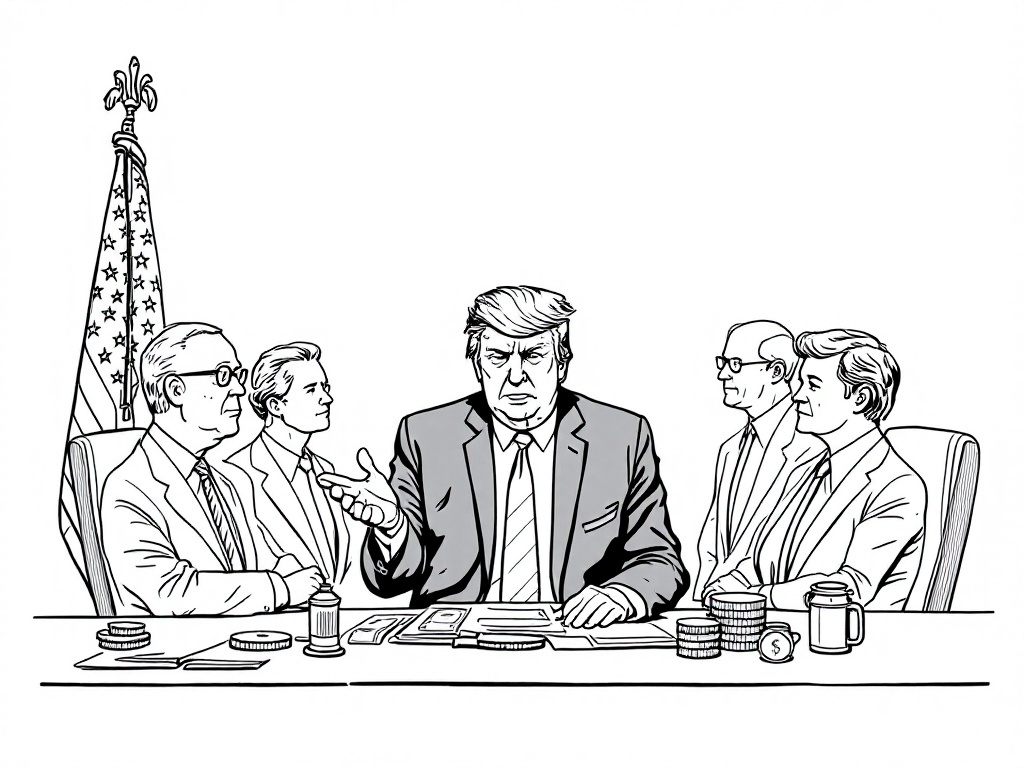Trump Dismisses Democrats from Credit Union Regulatory Board

Washington, Wednesday, 16 April 2025.
President Trump has removed two Democratic members from the National Credit Union Administration board, heightening political tensions and altering regulatory dynamics within the credit union sector.
Implications of Recent Dismissals
This week, President Donald Trump has taken decisive action by removing Todd Harper and Tanya Otsuka, two Democratic board members of the National Credit Union Administration (NCUA). This move serves not only as a sign of intensified political maneuvering within independent regulatory entities but also indicates a shift in power balance toward a more conservative regulatory approach [1][2]. With the board now left with just one member, Republican Kyle Hauptman, these dismissals are poised to significantly impact the oversight and regulation within the nation’s credit union system, valued at approximately $2.3 trillion [2].
Political Context and Reactions
The decision to remove Harper and Otsuka has stirred controversy, underlying tensions in administrative strategies, and raised alarms over the politicization of independent agencies. Harper, who initially joined the NCUA under Trump in 2019 and later named chair by President Biden in 2021, was due to serve until 2027, which emphasizes the preemptive nature of this removal [2]. Otsuka, appointed by Biden and confirmed by the Senate in 2023, also faced an early termination, despite her term being set to end in 2029 [2][3]. These actions have been met with sharp criticism. Harper labeled the decision as ‘ill-conceived and politically motivated’ and expressed concerns about the potential harm to consumer protection. Meanwhile, Otsuka criticized the administration for undermining democratic values and the rule of law by exploiting executive powers [1][3].
Legal and Administrative Dynamics
The removal of the board members is part of a broader strategy by Trump to reshape the landscape of regulatory oversight across multiple agencies. Recent weeks have seen a series of dismissals, including within the Federal Trade Commission, an action currently being challenged in federal courts [1][2]. The White House, under Secretary Karoline Leavitt, has defended these firings as rightful exercises of presidential authority to shape the executive branch [3]. Nonetheless, these attempts outline a complex juridical-tussle that’s currently evolving, with implications not only for credit unions but for the independence of regulatory bodies at large.
Broader Implications and Future Prospects
Looking ahead, Trump’s actions have signaled a potential for heightened political interventions within regulatory bodies, fostering uncertainty over traditional checks and balances within government operations. As these dismissals coincide with pending legal challenges and Supreme Court considerations involving similar cases, the outcomes could set significant precedents for executive authority and independent agency autonomy in the United States [2][3]. Observers and stakeholders within the credit union sector will keenly watch how these shifts affect regulatory policies and consumer protection directives going forward.